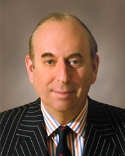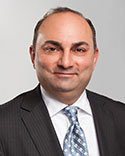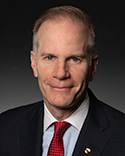Duane Morris partners have been recognized with The Legal Intelligencer’s 2021 Professional Excellence Awards for their "great work and achievements across the full breadth of the Pennsylvania legal community." The winners will be honored at an awards dinner scheduled for June 24, 2021.
The recipients and their award categories are:
- Matthew A. Taylor, Distinguished Leaders
- John J. Soroko, Lifetime Achievement
- Richard A. Silfen, Most Effective Dealmakers
- Seth A. Goldberg, Law Firm Innovators
Additionally, William M. McSwain is named an Attorney of the Year Finalist. The publication writes: "In a year of rising crime across the country, former U.S. Attorney William McSwain was a staunch and outspoken advocate for the so-called 'law and order' style of criminal justice. Under his tenure, McSwain surged federal resources to prosecute violent crime, and lodged numerous public corruption cases against some of Philadelphia’s most prominent members, including union leaders, City Council members and others holding high office in the city. McSwain also spearheaded the creation of several new units in the office, including a regional Health Care Fraud Strike Force aimed at rooting out fraud, and a unit to handle complex civil enforcements. During 2020, McSwain also appeared in the U.S. Court of Appeals for the Third Circuit to argue against the nation’s first so-called 'safe injection' site in a case that is certain to have lasting ramifications as the country continues to struggle with the opioid epidemic."
Lauded as “a standout deal” by the press in early 2020, the firm’s merger with one of New York’s preeminent firms, Satterlee Stephens, expanded Duane Morris’ already-significant presence in the New York market by 60% to more than 160 lawyers. Taylor’s close attention to every detail over a year-plus of talks between firms underscored the importance of each firm’s collaborative culture, long a hallmark of Duane Morris and the subject of an unprecedented two Harvard Business School studies.
During COVID-19, under Taylor’s leadership, the firm seamlessly transitioned to an almost fully remote workforce when local stay-at-home orders were issued in March. Since then, he has constantly been communicating with staff and attorneys through virtual town halls about the state of the firm, always with a positive and forward-looking attitude and message.
Needless to say, 2020 was a chaotic year. What’s the first piece of advice would you give someone when dealing with a crisis?
Bring together all of your stakeholders in the key departments of your organization, and lean on the talent and expertise of all those stakeholders and empower them. You can’t do things yourself—you need to lean on those around you. After getting all the input from the talent, you have to be decisive—have confidence in yourself and your team, and make the calls, even if they’re tough.
What is the most valued piece of advice you ever received?
My brother, a Navy Seal, tells me (and I follow his advice): Always be humble, and never be too impressed with yourself.
If you did not become a lawyer, what career path would you have pursued?
English teacher and football coach at Malvern Prep.
Who is a mentor you admire and why?
I actually have had two great mentors—our two previous chairs—Sheldon Bonovitz and John Soroko. Why? They both had completely different styles, but always came to the same result— doing what’s best for the law firm and for our culture.
The legal field is constantly facing new challenges every year. What does the legal profession need to do to prepare the next generation of lawyers?
I feel very strongly about this—offer professional development training, and make sure the next generation is actually given opportunities to take the lead on matters. Whether transactional or litigation—we have to give our young lawyers actual real-life experience on files—and put them front and center.
With a career spanning over four decades, Soroko has made a significant mark on the legal landscape in Pennsylvania, with a legacy that continues through his law practice, leadership and civic engagement.
Soroko is chairman emeritus and partner at Duane Morris, having served as the firm’s chairman and chief executive officer from 2008 through 2017, before returning full-time to his litigation, appellate and mediation practice. While chairman, Soroko oversaw the growth of Duane Morris to 750 lawyers with significant increases in the firm’s revenue, profitability and capital structure.
He spurred significant firm expansion in the United States and abroad, highlighted by the establishment of the firm’s Silicon Valley office and the launch of the firm’s innovative Singapore-based joint venture, Duane Morris & Selvam, as well as operations in other Asian markets.
What’s the most important thing you’ve learned during the course of your career that you wish you knew as a young lawyer?
As a young lawyer I really had no appreciation for the extent to which lawyers could experience —and actually benefit from—moving between and among the worlds of private law firms, corporate legal positions and government/public service. Happily, younger lawyers today have a much better understanding that such mobility is not only possible, but that it can very much enhance one’s career, and very significantly. I certainly wish I had had a fuller understanding of that as a younger lawyer. The world of “lawyer mobility” was certainly far less appreciated when I was a younger lawyer.
Change in the legal field seems to be ever accelerating. What’s the biggest change you’ve seen in the profession during your career?
Technology. As a first-year lawyer, I was handed client files that actually had in then copies that had been made with real carbon paper. I’m not certain you can even buy carbon paper anymore! Similarly, “cutting and pasting” was something done, literally, with scissors and scotch tape! Seeing the impact of technology on the practice of law has been fascinating and, beyond that, the reality is that the potential overall effect of technology on what we do as lawyers and how we do it is probably still being underestimated.
What is one thing about the profession that has remained unchanged over the years?
Despite the influence of technology, this is still a “people” business, with a premium on emotional intelligence. And that means that lawyers who have a high “EQ” will always enjoy a competitive advantage. As the practice of law has become something which is, increasingly, carried out “at a distance,” and with so much less person-to-person contact, how younger lawyers will develop their “emotional intelligence” is a very real and interesting question.
What do you wish you could see more of?
Over a year now into the COVID-19 pandemic, with all of its restrictions, that’s an easy one for me to answer: colleagues and clients. While the ability to function on a remote basis has been essential, getting back to the normal rhythms of office life, for me, just can’t come soon enough. There’s been a lot of discussion about what we’ve learned we can do while not being in the office, but not much discussion about what we’ve lost in terms of what makes the practice of law enjoyable. We’ve lost a lot.
Silfen regularly advises companies and their boards, as well as fund sponsors and their portfolio companies, in mergers, acquisitions and control transactions and capital markets and other capital-raising transactions. He also assists emerging and private equity-backed companies to develop plans for growth and development of their businesses and technologies. In 2020, Silfen has led or co-led the following: he represented Catalent, Inc. in its “carve-out” acquisition of the manufacturing and packaging operations of Acorda Therapeutics, he advised the special committee of the board of directors of Customers Bancorp in the merger of its subsidiary, BankMobile Technologies and represented Stonemor Partners in its recapitalization transaction to name a few.
Many anticipated deals were put on pause during the tumult of 2020. How did you overcome these obstacles?
Fortunately, our transaction volume has been so heavy that in some instances, pauses gave our teams much-needed “breathers” and enabled us to take on additional transactional assignments.
Of course, paused deals are not necessarily “done,” and proactive dealmakers can work to find elegant solutions where others see only disputes and multi-year litigation. After the initial shock and disappointment of the pause itself, we tried to maintain a positive outlook that solutions were possible. We engaged with our clients and their financiers and listened attentively to their concerns about uncertainty and risk. Drawing on decades of transactional experience, we developed potential resolutions that might be used to re-start negotiations. We rolled up our sleeves and found ways to address concerns—to much appreciation by our clients and their counterparties.
What is the top quality that you’ve used to succeed in the profession?
I’ve become a more engaged listener and a creative solution provider—my greatest assets as a dealmaker—and use humor to break tension, ease conflict and enable forward progress.
Earlier in my career, I focused too heavily on a perceived need to be “out in front” of situations, giving advice. Fortunately, many of my initial judgment calls were successful, resulting in closed deals and happy clients. This enhanced my self-confidence, helping me mature into the more artistic elements of dealmaking. Drawing on my formative years working in the summers in New York’s garment district for my grandmother, a successful entrepreneur, I learned finesse. She knew how, subtly, to be the “smartest person in the room.”
Leveraging these teachings, my own experience and what I’ve learned learn from others, my best features became listening, creative problem solving and a touch of humor: listening to gain a strong understanding of clients’ needs and goals, creativity to achieve those goals and humor to lessen the tension of difficult situations, making solutions more possible.
What is one piece of advice you would give someone that you wish you had starting out?
Indeed, there are three pieces of advice I wish I had starting out:
- Talk less; listen more. When I was a young lawyer, I thought I needed to demonstrate my knowledge and experience, when, in fact, I had already earned my seat at the table. Use that confidence to be a more engaged listener.
- Take a holistic view. Consider how you can close the deal while achieving your client’s business goals. Do not consider any problem without pressing to find a workable solution. Ask yourself: how can I achieve what our client wants by also getting something good or better for others? A client recently complimented me, reminding me that I taught him that when a company is sold, many executives of the target end up working for the buyer. He learned from me the importance of avoiding acrimony in a deal because the principals had to be able to work together effectively afterward.
- Use humor appropriately. No one likes a “jokester” in a serious business setting, and some so-called humor can be inappropriate. But, at the right times and in the right setting, a bit of humor—particularly self-deprecating humor—can be useful to de-escalate a tense situation.
Goldberg, a team lead of the multidisciplinary cannabis industry group, is the driving force behind the cannabis practice at the firm. He spearheaded the formal establishment of the firm’s cannabis industry group in 2015 when he identified the then-nascent cannabis industry as an emerging market that was not being serviced by large law firms, even though the complexities and facets of cannabis-related transactions make the industry suitable to multi-service law firms. Since then, the firm’s cannabis clientele has grown every year, and the strong performance of these clients for the firm has resulted in cannabis becoming an industry of greater focus. The practice now includes more than 50 lawyers throughout the U.S., and across all of firm’s service areas, who advise a broad range of cannabis industry participants on a daily basis. Today, the firm is one of the few large law firms with a national cannabis practice.
Necessity is the mother of invention. What need was your firm inspired to address with your innovation?
Cannabis is one of the very few emerging markets, with annual performance over the past few years exceeding $10 billion, and projections in the tens of billions. Given its complex regulatory issues, we believe the industry is well-suited for a large law firm with the experience and the breadth of practice to provide a multi-disciplinary team of highly skilled lawyers to a matter.
Over the approximately six years that Duane Morris has been advising clients in the cannabis space, federal and state laws, regulations and guidance have been in constant flux. Marijuana is still federally unlawful to grow, process and dispense, while the number of states that have legalized marijuana for adult-use and medical purposes has grown to more than 15 and more than 30, respectively, and hemp was made federally lawful in 2018, but it is regulated differently in every state.
Duane Morris was one of the very first Am Law 100 firms to serve the cannabis industry on a national and global platform across our firm’s entire suite of legal service offerings.
Innovation within a law firm requires a strong vision and a lot of coordination internally. How was your firm able to turn a vision into a reality during such an unpredictable year?
The more than 50-plus Duane Morris lawyers with cannabis experience are also experienced in other subject matter disciplines, e.g., litigation, corporate, real estate, employment, taxation, etc., and practice throughout our 25-plus U.S. offices. During 2021, our multi-disciplinary team approach allowed us to provide our cannabis-related clients with counsel on cannabis-related pandemic issues, such as how PPP loans might be provided, or not provided to cannabis-related businesses, while also advising them on how the pandemic was changing laws relative to particular subject matters. For example, through communications with the Small Business Administration and a bank, our cannabis-experienced healthcare and banking lawyers were able to secure PPP loan forgiveness for a large Pennsylvania-based healthcare provider that recommends medical marijuana to its patients. Given the tumult of the pandemic, our multidisciplinary team approach to our cannabis practice provided our cannabis clients with the stability of lawyers who were both experienced in the novel and multi-faceted cannabis industry and possessed with the high-caliber skills on complex transactions and matters expected of lawyers at an Am Law 100 firm. Our multidisciplinary approach has distinguished Duane Morris from other law firms that practice in the space, as we have lawyers practicing across our entire platform of services and offices that are experienced in cannabis matters.
What obstacles did the firm need to overcome to execute that vision?
As a general matter, to execute our vision of a multi-disciplinary cannabis practice, we had three obstacles. First, we had to understand the parameters by which lawyers could practice in this space, which have evolved over time with the ever-changing federal and state regulatory environment. Second, we had to have lawyers who are skilled in our various subject matters, e.g., corporate, employment, banking/finance, private equity/venture capital, get enough exposure to cannabis matters and issues that they could provide experienced counsel on both their subject matter and how that subject matter is affected by cannabis-specific issues. This took a few years, but we now have the same kind of bench strength to offer cannabis clients that we offer clients in all of our other industries. Third, we had to be willing to pioneer unchartered waters as one of the first and one of the large law firms to practice given the unsettled regulatory environment and emerging market that is cannabis. Without a track record or history of cannabis industry participants, be the operators, investors, or ancillary suppliers, using large law firms, and given the constantly changing regulatory environment, we had to stay focused on our objective of providing cannabis industry participants with a suite of legal services our large law firm provides. This was especially challenging during the pandemic, as the cannabis industry, which is still virtually nascent, had to deal with its first recession and pull back from the strong investment that fueled its strong growth in the three to five years leading to 2020. The cannabis market hung in there, with some dips, and is really getting back to full strength.
For more information, please visit The Legal Intelligencer website.












